Devika Rani: The grand-niece of Rabindranath Tagore, was the first lady of Indian cinema- GetBengal story
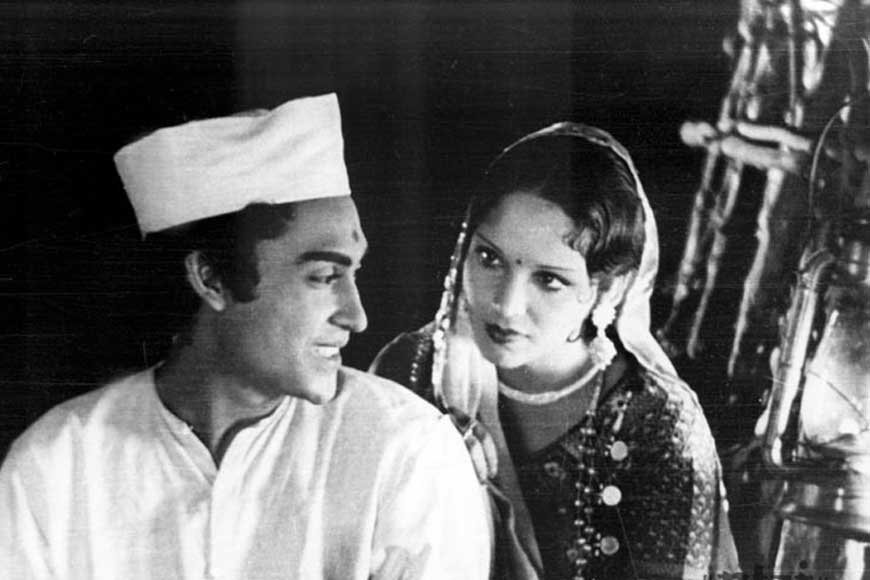
During a period when society did not readily accept women in the job, when working in the film industry was considered an impossible career for women, in that era, Devika Rani played the role of a trailblazer. She chose a way that few others dared to walk on.
Very less people know that Devika Rani was already a symbol of strength and grace even before the appearance of legendary actresses like Madhubala and Nargis on the big screen. Devika Rani was frequently referred to as the "Indian Garbo" and was the pathfinder to bring Indian Cinema to the global stage.
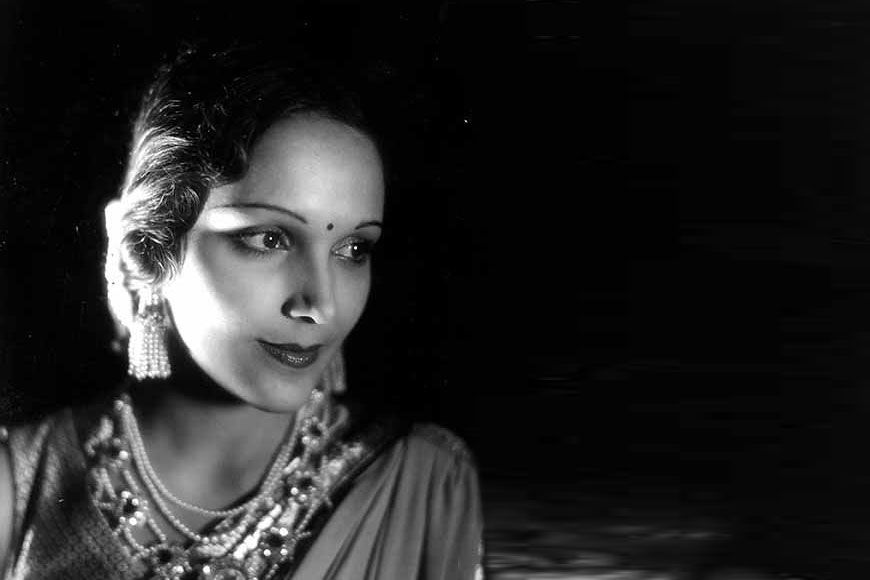 Devika Rani
Devika Rani
Devika Rani’s unique traits made her stand out among other actresses and film personalities. She made a lasting impression on viewers by appearing in numerous women-centric films. Mentionably, she co-founded India's first fully functional film studio, Bombay Talkies, with her husband, filmmaker Himanshu Rai. Despite her final departure from the industry, she left a magnificent legacy as a true pioneer who transformed Indian cinema.
Born in Waltair near Vishakhapatnam, Devika Rani Chowdhury belonged to an educated, cultured, and affluent Bengali family. Her father, Colonel Manmatha Nath Chaudhuri, was the first Indian surgeon general of the Madras Presidency. Her paternal grandmother, Sukumari Devi, was Kobiguru’s sister, and Devi Rani’s mother, Leela Devi Choudhary, was Tagore’s niece.
When Devika Rani was just sixteen, she earned a scholarship to the Royal Academy of Dramatic Arts after completing her studies in a private school in London. She was not only involved in acting but also had studied architecture and textile design.
In 1928, while assisting in set design for the silent film “A Throw of Dice”, she met Himanshu Rai, who was 16 years older than her. After falling in love, they married the same year and moved to Berlin. In Berlin, they worked at UFA Studios and achieved an exceptional sense of filmmaking from great filmmakers like Eric Pommer and G.W. Pabst.
Devika Rani debuted in the first English-language talkie, Karma (1933), produced by an Indian. It was a multilingual feature. When the movie debuted in England, Devika was praised for her exceptional performance. A daring four-minute kissing sequence with Himanshu Rai made it renowned. However, the movie did not perform well when it was released as “Nagin Ki Ragini” in India.
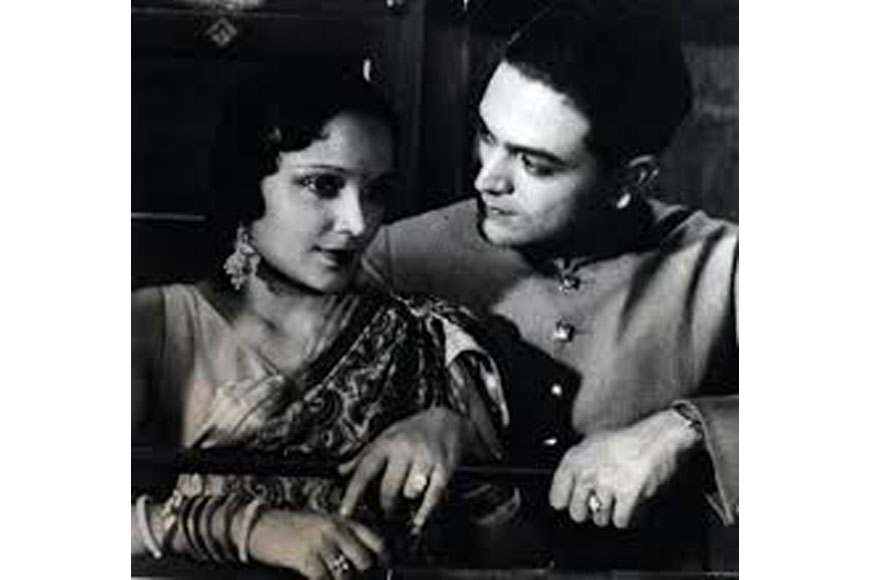 Devika Rani with Himanshu Rai
Devika Rani with Himanshu Rai
The pair established Bombay Talkies after returning to India in 1934. Jawani Ki Hawa (1935), their debut feature, was a criminal thriller. Devika fell in love with her co-star Najm-ul-Hussain during this movie and left the project incomplete and eloped with him. The studio suffered significant losses. However, she was eventually persuaded to go back when Bombay Talkies sound engineer Sasadhar Mukherjee requested her. Despite her return, her relationship with Rai was irrevocably altered, and Nahm-ul-Hassan got fired. On the other hand, Ashok Kumar took Hussain's place in the Bombay Talkies.
Beginning with Jeevan Naiya, Devika and Ashok Kumar gradually became one of the most popular onscreen duos. They starred in the daring caste-system film Achhut Kanya in 1936. They contributed to a number of films that addressed significant societal concerns throughout the ensuing years, including films like Jeevan Prabhat, Izzat, Nirmala, Durga, and Vachan.
Himanshu Rai died in 1940 after having a nervous breakdown. Devika fearlessly took charge of the studio. She oversaw Bombay Talkies' production of Naya Sansar (1941) and the smash hit Kismet (1943), which was continuously shown at the Roxy Theatre in Kolkata for three years. In 1943, Devika Rani made her last movie, Hamari Baat.
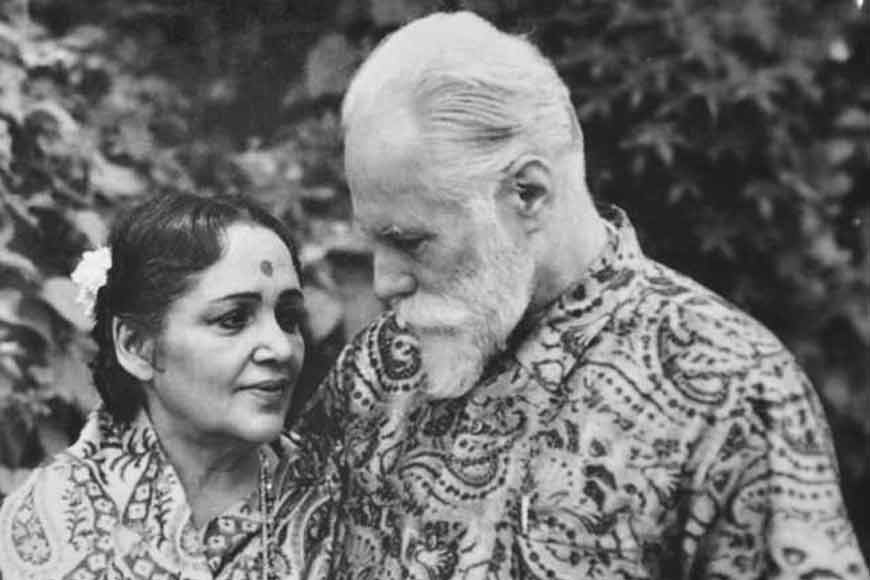 Devika rani with husband Svetoslav Roerich in later years
Devika rani with husband Svetoslav Roerich in later years
Devika had to deal with internal politics and sexism in spite of her accomplishments. She eventually quit the studio and assisted in establishing an independent studio, Filmistan, a new independent studio. However, she quickly left the movie business entirely since she didn't want to sacrifice her artistic principles.
Devika Rani eventually married Russian painter Svetoslav Roerich and opted for a low-key life. She received a number of distinguished honours, such as the Dadasaheb Phalke Award in 1969. Padma Shri in 1958, and the Soviet Land Nehru Award in 1990.
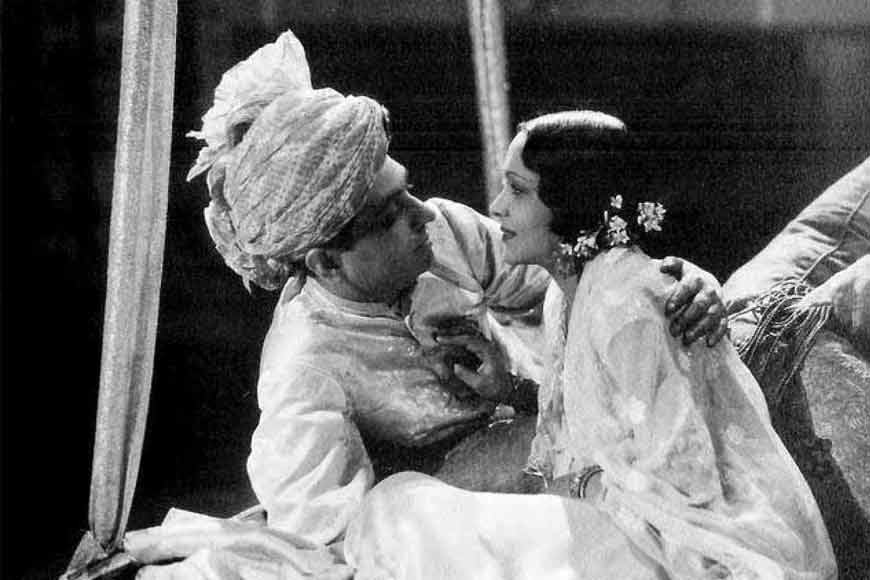 A still from Karma
A still from Karma
She passed away on March 9, 1994, marking the end of a remarkable chapter in Indian cinema history. People still remember her as a mystery—bold, different, and graceful. She never caved in to peer pressure and always followed her passion. As the First Lady of Indian cinema, Devika Rani is still revered for her beauty, charisma, and groundbreaking contributions.










